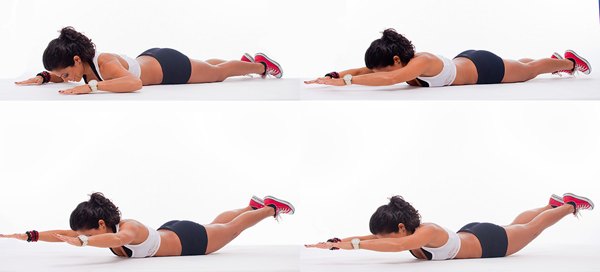Being in isolation without access to gyms and sports clubs should not mean people stop exercising, according to a new study from researchers at the University of Bath. Keeping up regular, daily exercise at a time when much of the world is going into isolation will play an important role in helping to maintain a healthy immune system.
Even with shelter-in-place and stay-at-home orders set up across the country, top officials like the CDC and WHO still encourage regular exercise—and for good reason. In addition to improving your mental health, a 2019 scientific review in the Journal of Sport and Health Science found that exercise can improve your immune response, lower illness risk, and reduce inflammation.
The study looked at “acute exercise,” meaning that of moderate to vigorous intensity lasting less than an hour. (The study mainly examined walking, but that could also mean an elliptical workout, a spin class, or even a run.) Study author David Nieman, DrPH, a professor in the department of biology at Appalachian State University and director of the university's Human Performance Laboratory, tells Health that typically, people only have a small number of immune cells circulating around the body. Those cells prefer to hang out in lymphoid tissues and organs like the spleen, where your body kills viruses, bacteria, and other microorganisms that cause disease
Because exercise increases blood and lymph flow as your muscles contract, it also increases the circulation of immune cells, making them roam the body at a higher rate and at higher numbers, says Nieman. Specifically, exercise helps to recruit highly specialized immune cells—such as natural killer cells and T cells—find pathogens (like viruses) and wipe them out. In Nieman's 2019 review, participants who took a 45-minute brisk walk experienced this uptick of immune cells floating around the body for up to three hours after the walk, Nieman explains.
While you do get an immediate response from your immune system when you exercise, that will eventually go away—unless, that is, you keep working out consistently. “If you go out for 45 minutes of exercise the next day, this all happens again,” Nieman says. “It all adds up as time goes on.” In fact, another study from Nieman and his team—this one published in 2011 in the British Journal of Sports Medicine—found that those who did aerobic exercise five or more days of the week lowered the number of upper respiratory tract infections (like the common cold) over a 12-week period by more than 40%.
Can exercise harm your immune system at all?
Like all good things in life, science says you can overdo exercise. Pushing yourself too hard for too long can actually put you at higher risk of infection—but you have to go pretty far past that “acute” level of training to experience negative side effects.
Research is uncovering a link between moderate, regular exercise and a strong immune system. However, there is also evidence that too much intense exercise can reduce immunity and may even make you sick.
The average adult has two to three upper respiratory infections each year. We are exposed to viruses all day long, but some people seem more susceptible to catching colds or the flu. The following factors have all been associated with impaired immune function and increased risk of catching colds.
Co-author, Dr John Campbell added: "People should not fear that their immune system will be suppressed by exercise placing them at increased risk of Coronavirus. Provided exercise is carried out according to latest government guidance on social distancing, regular exercise will have a tremendously positive effect on our health and wellbeing, both today and for the future."
Regular moderate intensity aerobic exercise, such as walking, running or cycling is recommended, with the aim of achieving 150 minutes per week. Longer, more vigorous exercise would not be harmful, but if capacity to exercise is restricted due to a health condition or disability, the message is to 'move more' and that 'something is better than nothing'. Resistance exercise has clear benefits for maintaining muscles, which also helps movement.
At this current time in particular, the researchers underline the importance of maintaining good personal hygiene when exercising, including thoroughly washing hands following exercise. To give the body its best chance at fighting off infections, they suggest in addition to doing regular exercise, people need to pay attention to the amount of sleep they get and maintain a healthy diet, that is energy balanced to account for energy that is used during exercise. They hope that this debate article will lead to a wave of new research exploring the beneficial effects of exercise on immune function.
Listen To Your Body
You can choose any exercise you like. It could be as simple as going up and down the stairs, jumping rope, biking, or swimming. The key is to listen to your body. You should be panting at the end of each exertion period. You should not be taxed and exhausted through the whole workout.
Try This PACE Move
Here’s a sample PACE move you can try right now. All you need is your own body and some space.
Supermans:

- Lie on the floor on your stomach with your arms extended in front of you and your legs extended behind you. Your chin should be slightly off the ground.
- Contract your back muscles and raise your arms and legs a few inches off the floor at the same time.
- Hold for three seconds, then lower your arms and legs back to the starting position.
- Repeat several times, until you are slightly winded.
Do three sets, taking time to recover completely between each set. And to make this truly a PACE workout, increase the intensity with each set, either by increasing the number of Supermans you do or by increasing the amount of time you hold the position.
x
x





















No comments:
Post a Comment